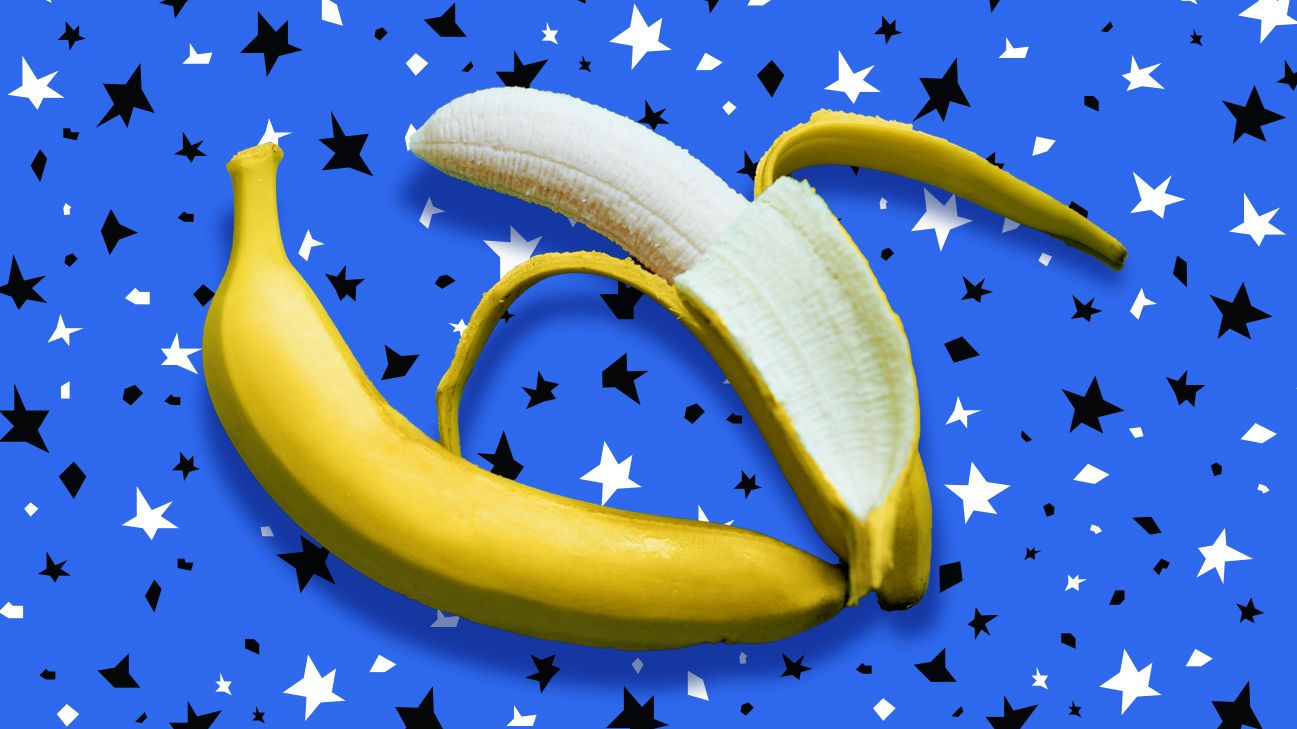Potassium is an essential mineral that keeps your body functioning properly, by regulating fluid balance. It reduces your risk of high blood pressure, stroke, and kidney stones. You need to eat enough food sources of potassium to meet your daily needs.
Potassium is the unsung hero of the mineral world. It doesn’t get the attention it deserves, despite being needed for healthy cell function and fluid balance, nerve and muscle function, and countless other critical functions.
It’s uber important you get enough potassium from your diet. Here’s a rundown of the 16 best potassium powerhouses to pack your plate with.
Here are 16 foods that are high in potassium:
- Apricots
- Lentils
- Acorn squash
- Prunes
- Raisins
- Potatoes
- Kidney beans
- Orange juice
- Soybeans
- Bananas
- Milk
- Spinach
- Chicken breast
- Yogurt
- Salmon
- Beef
Apricots
Apricots pack a serious potassium punch. Just a 1/4 cup serving of dried apricots provides 465 mg of potassium.
But that’s not all! Apricots are also a great source of fiber, vitamin A, and antioxidants. You can add them to yogurt, oatmeal, or desserts. Plus, they’re the perfect portable snack for when you’re on the go.
Lentils
Move over, meat! Lentils are here to show you that plant-based protein can be just as powerful! These legumes are not only packed with protein but also with potassium, fiber, and iron. Just one cup of cooked lentils can provide 731 mg of potassium. It also contain high fiber, protein, and iron content.
And the great thing about lentils is that they’re cheap, versatile, and tasty. So use them in everything from soups and stews to salads and burgers.
Acorn squash
Acorn squash can be roasted, mashed, or used as a healthy alternative to fries. This little dinky winter squash is not only deliciously sweet and nutty but also packed with fiber, vitamins, and minerals.
A one-cup serving of cooked acorn squash contains 896 mg of potassium. It’s also a great source of vitamin C, which can help boost your immune system and protect your skin from free radical damage.
Prunes
Prunes may not have the most glamorous reputation. But these dried plums deserve more love, especially when it comes to potassium! Prunes are a potassium powerhouse coming in hot at 293 mg per 1/4 cup. They’re also rich in fiber, vitamin K, and antioxidants, making them a great addition to any healthy diet.
And let’s not forget about their digestive benefits — prunes have long been known to help keep things moving in the gut department. So adding some prunes to your snack rotation will boost potassium and keep you regular. Win-win!
Raisins
Raisins, a.k.a. dried grapes, are rich in fiber, antioxidants, vitamins, and minerals. While they’re not the most glamorous food around, they’re a handy snack, and you can add them to sweet and savory dishes.
Just be mindful of portion sizes, as raisins are high in natural sugars, and it’s easy to get carried away! However, a 1/4 cup serving provides 298 mg of potassium, so they’re a sound calorific investment.
Potatoes
Who doesn’t love spuds? Potatoes are a delicious and nutrient-packed veg. A single medium-baked potato packs 926 mg of potassium. Wowza!
But that’s not all — potatoes are also a great source of fiber, vitamin C, and other nutrients. Remember to take care with how you prepare them, as loading up on butter, sour cream, and other high-fat toppings can quickly turn this healthy vegetable into a calorie bomb.
Kidney beans
One cup of canned kidney beans boasts 607 mg of potassium. They’re also nutrient-dense, tasty, and at home in all sorts of dishes, like soups, stews, and salads. You can also mash them up with spices and use them as a protein-packed spread on toast or bread, and who can forget chili or bean burgers?
Orange juice
A classic breakfast staple that delivers 449 mg of potassium per cup, along with vitamin C, folate, and a bevy of antioxidants.
Yes, it’s nutritious, but you need to choose your orange juice wisely, as many store-bought brands are loaded with added sugars. To keep your orange juice healthy and potassium-packed, opt for freshly squeezed or 100 percent pure orange juice with no added sugars or preservatives.
Soybeans
With 443 mg of potassium per 1/2 cup serving, soybeans will power your muscles and keep your nerves firing on all cylinders. And they cram in a ton of protein into their little beanie bodies.
To get more soybeans in your life, try tossing them into salads, stir-fries, and soups or replacing meat with soy in dishes like veggie burgers or tacos. You can even try tofu, which is made from soybeans and is a potassium-rich protein source that can be grilled, baked, or scrambled to your liking.
Banana
A yummy medium-sized nana provides an impressive 422 mg of potassium. But they’re also a-peel-ing in other ways. They’re a great source of fiber, vitamin C and B6, fiber, and antioxidants, making them the “top banana” of snacks for busy folks on the go.
For a different banana snack, why not insert a popsicle stick, dip them in melted chocolate, and pop them in the freezer for a potassium-packed treat on a hot day?
But don’t go bananas! These nutrient-rich fruits are also relatively high in natural sugars and calories, so enjoy them in moderation.
Milk
Not only is 1% milk udderly delicious and low-fat, but it’s also a surprising source of potassium. With about 388 mg of potassium per cup, plus calcium, magnesium, and zinc, drinking 1% milk is an easy way to boost your mineral intake.
Slap it in smoothies, coffee, tea, or your post-workout recovery drink. You can also milk it for all its worth by using it as a base for homemade soups or sauces.
Spinach
Spinach is the superhero of leafy greens. Not only is it packed with vitamins and minerals, but it’s also a Popeye-approved source of potassium. Oh yes, you’ll get 292 mg of potassium from 2 cups of raw spinach. And if that’s not enough to persuade you to pop some spinach in your smoothie, it’s also rich in iron, a mineral crucial for transporting oxygen in the blood and supporting the immune system.
Chicken breast
Chicken breast is the lean, mean protein machine that’s a staple of many healthy diets. And with 242 mg in a 3-ounce serving, it’s a clucking good source of potassium. It’s also low in fat and calories, making it a great choice for weight management.
Another great thing about chicken breast is that you can use it in countless recipes. From stir-fries and salads to soups and sandwiches, there’s no limit to the delicious ways you can enjoy this lean and nutritious meat.
But as with any meat product, handling and cooking chicken safely is important to reduce the risk of foodborne illness.
Yogurt
Looking for a potassi-yummy snack? Grab a yogurt and boost your potassium intake by around 398 mg per 6-ounce serving. And with its calcium, protein, and gut-friendly probiotics, it’s a creamy and nutritious treat.
Besides enjoying a yogurt as is, you can mix in your fave fruits, nuts, or choccy bits to elevate its snack status or use it as a base for creamy dips and dressings.
And for those who prefer a plant-based option, there are plenty of vegan yogurts made from soy milk that also rock potassium.
PSA: Soy yogurt is much lower in potassium, than regular cow’s milk yogurt.
Salmon
Salmon is a fatty, flavorful fish that’s one of the most nutritious foods on the planet and a fin-tastic source of potassium. With about 534 mg of potassium per 3-ounce serving, salmon is a great way to support healthy muscle and nerve function. It’s also packed with B vitamins and omega-3 fatty acids, which are heart-healthy fats that lower inflammation and support brain health.
But if you’re thinking that fresh salmon is too pricey to indulge in regularly, canned salmon is a more budget-friendly alternative with similar benefits. You can use it in salads, spreads, or patties for a quick and easy meal that’s just as nutritious as fresh salmon.
Beef
Got beef? Maybe you should at 300 mg of potassium in 3 ounces. Beef is a delicious and versatile protein source and a rich source of other essential nutrients, like iron, zinc, and vitamin B12. These nutrients are important for maintaining healthy red blood cells, supporting immune function, and promoting optimal brain health.
When choosing beef, opt for lean cuts, such as sirloin or round steak, and prepare it with healthy cooking methods, like grilling, baking, or broiling, to maintain its nutrient content while keeping calorie intake in check.
Potassium is the boss of cells. It makes sure they contain the correct amount of fluid to enable them to work properly. It’s best buds with sodium, the mineral that regulates the fluids outside of the cells. Besides fluid balance, here are some of the many other benefits of potassium:
- Helps maintain healthy blood pressure
- Supports proper nerve and muscle function
- Helps prevent muscle cramps and weakness
- May reduce the risk of stroke and heart disease
- Promotes good bone health
- Helps the body maintain a healthy pH balance
- May reduce the risk of developing kidney stones
- Supports healthy digestion
- Helps the body convert food into energy
- May reduce the risk of osteoporosis after postmenopause
You know it’s critical, but how much potassium do you actually need? The adequate intake (AI) for adult males is 3,400 mg per day, and for females, it’s 2,600 mg. But pregnant folks should aim for 2,900 mg, and anyone chestfeeding needs around 2,800 mg per day. It’s worth noting, though, that these are general guidelines, and your needs may vary based on your age, activity level, and overall health.
Unfortunately, most Americans fall short of these levels, with an average intake of around 2,496 mg daily. A diet high in processed, sugary, fatty foods may be low in potassium and other essential nutrients, leaving people open to deficiencies. So, instead of opting for these less nutritious foods, consider adding more potassium-rich whole foods like veggies, fruits, and meats to your meals and snacks.
While potassium is essential for health, you can have too much of a good thing. But, if you’re healthy, with normal kidney function, you can’t overdose on potassium as you excrete the excess in your pee. This is why experts haven’t set an upper safe limit for potassium. In fact, there is no evidence to suggest it’s even possible to overdose on potassium from food.
However, folks with kidney problems may have issues as they can’t get rid of excess potassium efficiently. So it can build up in the blood, termed hyperkalemia, and can cause serious health problems like irregular heart rhythms or cardiac arrest. That said, be mindful of your supplement and salt substitute intake.
Potassium is an essential nutrient that plays a crucial role in health and well-being. From regulating fluid balance and blood pressure to supporting proper muscle and nerve function, potassium is critical for countless bodily processes.
Fortunately, getting enough potassium in your diet isn’t too challenging, as there are plenty of delicious and nutritious foods that can help you meet your daily needs. Try popping apricots and prunes in your morning porridge, grilling salmon and baking spuds for dinner, or sneaking a handful of raisins when you’re peckish There’s no shortage of options to choose from.
Just aim for around 2,600 mg of potassium daily for females or 3,400 mg per day for males, and remember to vary your sources to get a wide range of nutrients in your diet.


